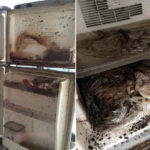Cancer is a significant group of diseases characterized by the rapid and abnormal division of cells, capable of spreading to other tissues and organs. These developing cells can form tumors and disrupt the body’s normal functions.
It is one of the leading causes of death worldwide. According to the World Health Organization (WHO), cancer accounted for nearly one-sixth of total deaths in 2020.
To reduce the risk of cancer, it is advisable to limit the consumption of certain foods as they may inadvertently create favorable conditions for cancer cells to develop in the body.
1. Rotten Fruits
Feng Xielin, chief physician of the Liver and Pancreas Surgery Department at Sichuan Cancer Hospital in China, stated that rotten and moldy fruits often contain two common mycotoxins: patulin and ochratoxin A. According to the International Agency for Research on Cancer (IARC) of the World Health Organization (WHO), both substances are classified as carcinogens. Although their cancer-causing abilities are not strong, they are clearly harmful to health. Specifically, patulin can damage the intestines and impair kidney function, while ochratoxin A is toxic to the liver and kidneys.
Additionally, there are other mycotoxins that are even more dangerous. For example, the arthrospora toxin in rotten sugarcane and aflatoxin in moldy fruits are both potent carcinogens and can cause acute poisoning.
Since most fruits contain a lot of water, mold can spread inside the fruit along with the fruit’s moisture. Therefore, even the parts that are not visibly moldy may have been affected.
For this reason, consuming rotten and moldy fruits is unsafe and should be avoided altogether.
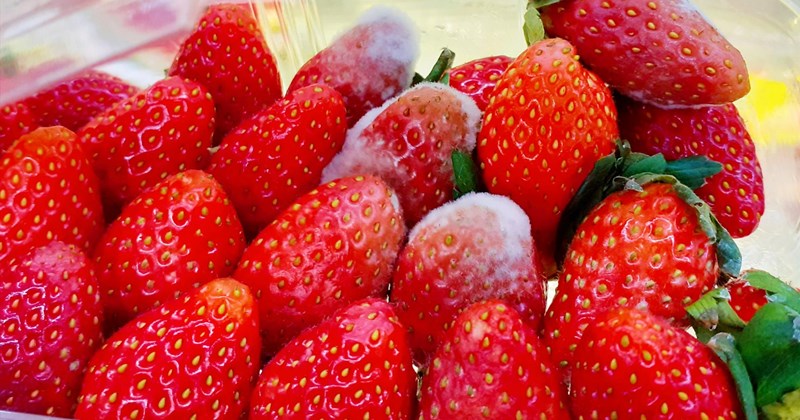
Consuming rotten and moldy fruits is unsafe and should be avoided.
2. Pickled Vegetables and Oily Vegetables
Pickled Vegetables
In 2023, the British Internal Medical Council published a large study involving 440,000 people, indicating that regular consumption of pickled vegetables (fermented vegetables) may increase the risk of esophageal cancer. The study found that compared to those who did not eat pickled vegetables, those who regularly consumed this type of food had a 45% higher mortality rate from esophageal cancer.
Oily Vegetables
Dishes like French fries and grilled eggplant often contain very high amounts of oil. These oily foods not only have a high-fat content but also pose a significant risk factor for colorectal cancer.
Yu Kang, head of the Department of Clinical Nutrition at the Beijing University of Medicine Union Hospital in China, explains that many carcinogens can dissolve in fat. Therefore, when consuming large amounts of fat, the body absorbs more carcinogens, increasing the risk of developing the disease.
Moreover, a high-fat diet stimulates increased bile acid secretion in the intestine, which can irritate and damage the intestinal mucosa. Prolonged exposure to this irritation and damage can lead to the formation of tumor cells, resulting in colorectal cancer.
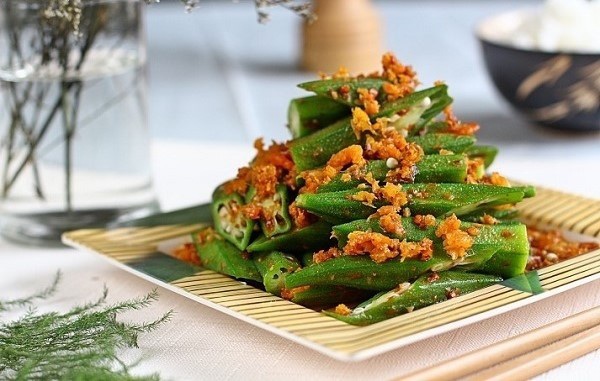
A high-fat diet increases bile acid secretion, irritating, and damaging the intestinal mucosa.
3. Hot Water, Sugary Drinks, and Alcoholic Beverages
Hot Water above 65°C (149°F)
According to the classification of the International Agency for Research on Cancer (IARC), water heated above 65°C (149°F) falls into the category of probable carcinogens (Group 2A). Animal experiments have shown that beverages consumed at temperatures between 65°C and 70°C (149°F and 158°F) can cause burns and damage to the throat, leading to an increased risk of esophageal cancer.
The mucous membranes of our mouth and esophagus are very sensitive to high temperatures. The safe temperature range for consumption is usually between 10°C and 40°C (50°F and 104°F), and the maximum temperature the body can withstand without causing severe damage is between 50°C and 60°C (122°F and 140°F). When the temperature exceeds 65°C (149°F), the risk of mucosal burns increases significantly.
People who have a habit of consuming hot foods and drinks regularly may develop thicker mucous membranes due to continuous stimulation, leading to reduced temperature sensitivity. However, this also increases the risk of esophageal cancer. Therefore, it is essential to change eating habits and avoid consuming extremely hot beverages.
Sugary Drinks
Consuming sugary drinks increases the risk of cancer. A study published in the British Medical Journal in 2019, involving over 100,000 participants, showed that drinking 100ml of sugary drinks per day increased the overall cancer risk by 18%. Dr. Yu Kang states that drinking one can of sugary soda per day for a year can lead to weight gain of about 18 pounds, and obesity is a significant risk factor for cancer.
In addition to sugary sodas, other sugary drinks should also be consumed sparingly. Even freshly squeezed fruit juices contain concentrated amounts of sugar. Instead, drinking boiled water is a better choice, as it is both economical and healthy.
Alcoholic Beverages
Alcoholic drinks can directly damage liver cells and increase transaminase levels. There is ample evidence that drinking alcohol increases the risk of liver cancer, and this risk depends on the amount and frequency of alcohol consumption.
Whether it’s beer, wine, or liquor, all can increase the risk of cancer. Restricting alcohol consumption is crucial to lowering the risk of cancer-related diseases.
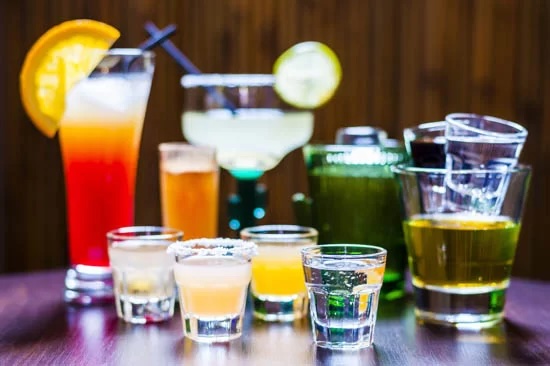
All types of alcoholic drinks can increase the risk of cancer.
4. Types of Meat
In modern life, meat is an indispensable part of our daily diet. However, not all types of meat are safe for our health. Here are warnings from experts about four types of meat that may increase the risk of cancer.
Processed Meat
Processed meat, including ham, bacon, and canned meat, is popular for its delicious flavor and convenience. However, Shi Wenli, deputy director of the Department of Nutrition at Beijing Boai Hospital, warns that this type of meat can increase the risk of cancer.
During production, nitrites are often added to extend the shelf life. When nitrites enter the stomach, they can react with proteins to form nitrosamines, which are carcinogenic. This increases the risk of stomach and colorectal cancer. Additionally, processed meats typically contain high levels of sodium, which can damage the stomach lining and increase the risk of cancer.
Red Meat
Red meat, such as pork, beef, and lamb, is known for its high saturated fat content, and is also listed as a probable carcinogen (Group 2A) by the IARC. While red meat is rich in minerals, especially iron, consuming too much of it can increase the risk of colorectal cancer. This does not mean that you have to eliminate red meat from your diet entirely, but it is important to control the amount consumed to ensure health and safety.
Grilled Meat
According to Xue Qingxin, a member of the Chinese Nutrition Society, grilling meat at high temperatures can pose a cancer risk. When meat is grilled at temperatures up to 370°C (698°F), heterocyclic amines and polycyclic aromatic hydrocarbons are formed, both of which are carcinogenic. This risk increases with higher temperatures and longer grilling times.
Salted Fish
Salted fish is a food that the WHO has listed separately as carcinogenic. During the salt-curing process, nitrites can react with amines, which are products of protein breakdown, to form nitrosamines, potent carcinogens. This increases the risk of cancers related to the digestive system.
It is crucial to carefully consider consuming processed meats, red meats, grilled meats, and salted fish. Restricting the intake of these foods and maintaining a balanced diet can help reduce the risk of cancer. Listen to the advice of nutrition experts and make necessary changes to your eating habits to protect your health and your family’s well-being.
Proper Cooking and Storage of Vegetables Mitigates Risk of Cancer
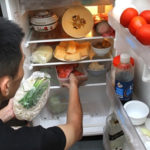 Risk of Cancer’>
Risk of Cancer’>As more of us look to incorporate vegetables into our diets as a path to better health, a warning should be heeded: if not stored properly, any vegetables leftovers could be a source of cancer-causing contaminants.
Analyzing Distinctions Between Covid-19 and Seasonal Flu Respiratory Illnesses
Have you been feeling under the weather lately? It might be difficult to tell whether it’s Covid-19 or flu symptoms you are experiencing. Fortunately, there are a few identifying factors that can help us differentiate between these illnesses. In this article, we’ll discuss the key differences between Covid-19 and seasonal flu.

























